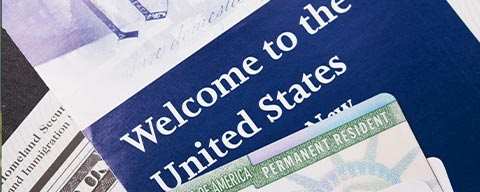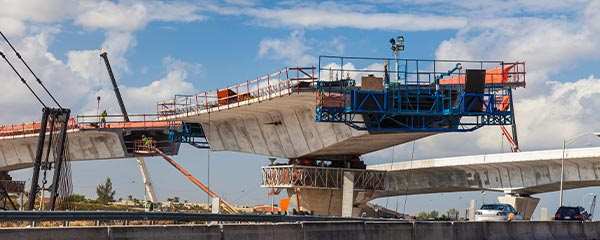A Q&A between Frank Newport and Lydia Saad on their recently published review of polling's most frequently used measure: presidential job approval.
Frank Newport: Lydia, our coauthored article "The Polls -- Review: Presidential Job Approval" has just been published in Public Opinion Quarterly, the research journal of the American Association for Public Opinion Research. We have been working on the review for quite a while now, and its publication gives us a chance to share with readers some (hopefully) interesting and important insights about presidential job approval and its measurement over the decades. In fact, as we note in the article, Dr. George Gallup began experimenting with a measure of presidential job approval in the 1930s, and by the time of the Harry Truman presidency, the question had become a routine measure that Gallup and other firms have used ever since. It's probably the most frequently used public opinion measure in history.
As we look back over the article, what do you think is the most important takeaway?
Lydia Saad: Part of the genesis for this article was to report the origins of the presidential approval question -- so for me, the most important takeaway is that the question was not as inevitable as it may seem. As pollsters who have asked it thousands of times over our careers, it's easy to take the presidential approval item for granted because it is so ubiquitous. But the research we did for this article helped me appreciate how much testing Dr. George Gallup did to arrive at the wording we use today. It was also fascinating to see the progression of its adoption by other organizations, which we describe in the article. It has certainly passed the test of time.
Frank: The measure of presidential job approval, as you note, first began to appear in Gallup polls in the 1930s and was solidified in its present form -- "Do you approve or disapprove of the way [president's name] is handling his job as president?" -- a few years later, by the start of the Harry Truman administration. Many other polling firms also began asking the question, sometimes with slightly different wording variations. The result is almost 80 years of continuous measurement, from the people's perspective, of the job our presidents have done.
Did any president's ratings stand out to you in particular in our review?
Lydia: With the article coming out when it did, we were able to incorporate the full four years of Donald Trump's ratings, thus putting his stats in context with all other presidents back to Truman. Seeing his first-term approval rating next to those of other presidents made it abundantly clear what an uphill battle he had in trying to win a second term. The strong relationship between presidential approval and both presidential and midterm elections is fascinating and impressive given the simplicity of this question devised more than 70 years ago.
Frank: Indeed. Trump ended up with the lowest first-term average of any president in Gallup's history of asking the job approval question since Truman. But, Lydia, our data show that George H.W. Bush had a first-term average of 61%, which seemingly should have made it easy for him to sail to a second term -- but, of course, he was defeated by Bill Clinton in the 1992 election. So the averages across four years, we assume, are less important than where the approval rating is in the months before Election Day. For Bush, his high ratings sank like a stone in the summer and fall of 1992. Other than Trump, the two other polling-era presidents who ran for a second term but were defeated in their bids for reelection were Gerald Ford and Jimmy Carter -- and both had first-term averages below 50%.
Lydia: Your point raises two interesting facts that we've written a lot about on Gallup News and also touched on in the Public Opinion Quarterly article. Those are that: 1) Trump's approval rating was remarkably steady during his presidency, so his 41% term average was fairly indicative of his reelection prospects; and 2) George H.W. Bush suffered one of the most dramatic declines in public approval of any president, plunging from 87% at the start of the Gulf War in 1991 to below 30% at one point during his reelection campaign a year later. That makes his term average uniquely unrevealing.
In reviewing the historical trends, I was also struck by how the term average ratings for presidents have not been on a steady decline over the decades but have fallen and rebounded. What do you think the future holds, post-Trump?
Frank: That's an excellent (and interesting) question about the future. As we point out, one of the significant changes we have seen over time is the increasing political polarization in job approval ratings. Americans who identify with the party of the president increasingly tend to approve, and those who identify with the opposite party increasingly tend to disapprove, leaving an ever-increasing partisan gap. We note that this could result in increasingly stable approval ratings in the future if partisans refuse to budge off of their party-determined views of the president. As you note, it appeared that no matter what Trump did while in office, his ratings stayed remarkably stable; Republicans approved, and Democrats disapproved. This pattern could mean that we are going to see lower highs and higher lows in presidential approval in the future.
At the same time, Lydia, looking back, there are certain factors that have historically resulted in high approval ratings, aren't there?
Lydia: Yes, so-called "rally events" have caused sudden surges in presidents' job approval ratings at a number of points in history. As we point out in the article, these tend to involve military victories or threats against the United States -- including, for example, victory in Europe in World War II and the 9/11 terrorist attacks. Hence, the use of the term "rally" to describe the public's "rallying around" the proverbial flag in their hyper-support for the president at these times. As we point out in the article, rally events are not always predictable, but you know them when you see them. They are also becoming less frequent, likely due to the aforementioned political polarization.
Frank, you've been a student of Dr. Gallup's philosophy and thought processes as one of the nation's leading polling pioneers. Why do you think he started asking the job approval question all those decades ago?
Frank: Dr. Gallup died in 1984, and I'm not sure we know all the reasons why he began asking the presidential job approval measure back in the 1930s. But based on my understanding of history -- both written and from my many years of talking with his two sons, Alec and George -- I think Dr. Gallup felt there was a need for a measure of how well the president was doing between elections. In much of his work, he argued forcefully for the need to understand and analyze public opinion in ways that went beyond, but didn't supersede, voting. Dr. Gallup recognized that elections were the constitutionally mandated way for the public to manifest its opinions on the nation's leadership, but he felt, I think, that in the long four years between presidential elections, there was a need for a more consistent update on public opinion about the president. And, since on Election Day Americans have to collate and summarize all of their feelings about politicians and make simple choices between just a few candidates on the ballot, he felt a simple approve/disapprove measure did a good job of mimicking that process in the interim between elections. Four years is a long time to go without any systematic sense of public attitudes toward the president.
At the same time, Lydia, some people argue that job approval measures are too short-term and don't allow presidents and other politicians to focus on the long term. I don't agree, but it would be interesting to get your thoughts.
Lydia: That is an interesting critique. It suggests that people's answer to the approval rating question is rooted in short-term events. But I would argue that it incorporates more enduring factors as well. Certainly, even before today's hyper-partisanship, job approval has reflected people's underlying partisan (and ideological) orientation. It also reflects the performance of the economy, which is usually more of a slow-moving factor. As a case in point, had Americans only been paying attention to headline news, they would have responded very differently to Bill Clinton during the Monica Lewinsky scandal. But their reaction to that was tempered by the fact that the economy was roaring. So, clearly, Americans factored that in when continuing to give Clinton good ratings. On the other hand, when a president's policies stray too far from the wishes of public opinion, polling provides a valuable service in documenting and reporting it.
A final question for you, Frank: What struck you the most writing this article?
Frank: Writing the article reinforced to me the great value of the presidential job approval measure as a simple, consistent and powerful measure of public sentiment -- with all of its peaks and valleys. The fever chart of public opinion since World War II gives us, at a glance, an excellent understanding of how the events of history have been registered by the people of the country.
I think it's useful to close with a couple of the more interesting facts we highlight in reviewing 75+ years of measuring presidential job approval. The president with the highest average job approval rating in Gallup history remains John F. Kennedy, while -- as we have noted -- the president with the lowest average job approval rating so far is Trump. The single highest approval rating was the 90% given to George W. Bush shortly after 9/11, while the single lowest rating was the 22% given to Truman in 1952.
Lydia: I hope our readers will click over to the article in Public Opinion Quarterly and read about the history and meaning of presidential approval for themselves. And, of course, I hope they stay tuned in here to Gallup News for continuing updates on presidential job approval in the months and years ahead.
To stay up to date with the latest Gallup News insights and updates, follow us on Twitter.
Explore President Trump's approval ratings and compare them with those of past presidents in the Gallup Presidential Job Approval Center.




